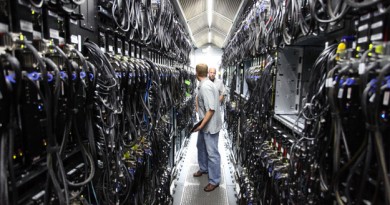National Kidney Registry Goes ‘Cloud’- Breakthrough Event Will Save More Lives
According to latest industry reports, The National Kidney Registry’s new SMELAC matching system has been successfully migrated to ![]() Microsoft’s Windows Azure cloud computing platform. It now boasts of a speedy paired exchange match processing. The announcement was made at the American Transplant Congress in Boston last night at the 4th Annual National Kidney Registry Awards Event by Garet Hil, CEO of the National Kidney Registry, and Wes Anderson, Microsoft’s Vice President of Public Sector Services.
Microsoft’s Windows Azure cloud computing platform. It now boasts of a speedy paired exchange match processing. The announcement was made at the American Transplant Congress in Boston last night at the 4th Annual National Kidney Registry Awards Event by Garet Hil, CEO of the National Kidney Registry, and Wes Anderson, Microsoft’s Vice President of Public Sector Services.
Windows Azure cloud computing platform has significantly increased the National Kidney Registry’s matching capacity by 400% allowing multiple match runs to execute simultaneously. This event has allowed the registry to facilitate a larger amount of pair exchange transplants.
Mr. Wes Anderson, Vice President for U.S. Public Sector Services at Microsoft, said, “The National Kidney Registry team realized early-on that scaling their success in kidney matching requires variable computing capability that may grow exponentially at very short notice, presenting important conditions for moving back-end processes to a cloud-based solution. By fully leveraging Windows Azure, the National Kidney Registry is continuing its amazing work of helping to provide a long and normal life for the ultimate benefactors of this endeavor — those among us who need the help of the community to overcome end-stage renal disease.”
Mr. Hil added, “Microsoft continues to provide valuable technical support as we continue to grow our program. The migration to Azure is the latest advance that is allowing our computing capacity to scale up as our pool of incompatible pairs expands.”
Expanding on the importance of this latest technology advance, Dr. Marc Melcher, transplant surgeon at Stanford University and Research Director for National Kidney Registry, said, “More and more transplant centers are using kidney paired exchange transplantation to help their patients in kidney failure, and the computational power required to support the sophisticated matching algorithms that sift through and evaluate all the potential matches has been growing exponentially.”
Data Center Talk updates its resources everyday. Visit us to know of the latest technology and standards from the data center world.
Please leave your views and comments on DCT Forum.

